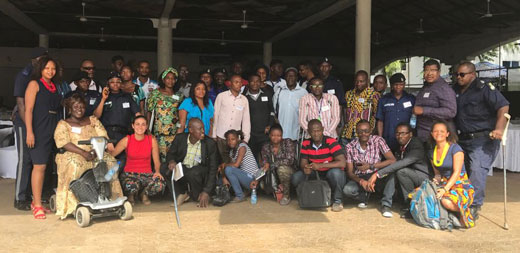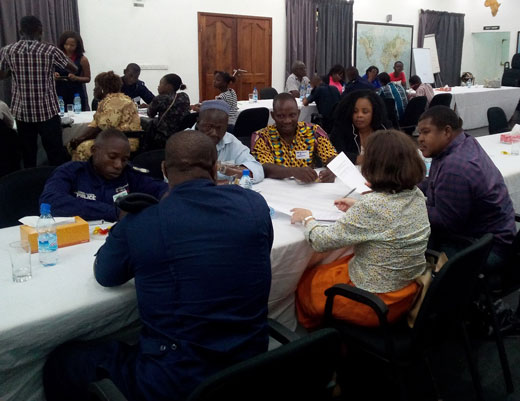Learning Event: disability advocacy in Sierra Leone
 Since 2015, the African Studies Centre Leiden and the Liliane Foundation have been collaborating in a learning trajectory on advocacy for children with disabilities. Based on research in Sierra Leone and Cameroon, the trajectory examines the process and outcomes of disability advocacy. Besides teasing out success factors, an important goal is to strengthen the capacity of the Liliane Foundation and its local partner organizations.
Since 2015, the African Studies Centre Leiden and the Liliane Foundation have been collaborating in a learning trajectory on advocacy for children with disabilities. Based on research in Sierra Leone and Cameroon, the trajectory examines the process and outcomes of disability advocacy. Besides teasing out success factors, an important goal is to strengthen the capacity of the Liliane Foundation and its local partner organizations.
Learning events organized in Sierra Leone and Cameroon play an important part in the capacity strengthening. During these events preliminary research findings are presented to local stakeholders and their practical implications are discussed. On 14 December a learning event was organized in Freetown, Sierra Leone, by Amélie van den Brink (Leiden University), Silvia Peirolo (Wageningen University), Dr. Aisha Fofona Ibrahim (local supervisor) and One Family People (OFP), the local partner of Liliane Foundation. Silvia and Amélie presented their preliminary research findings to OFP staff and approximately 50 police officers and disability and gender activists.
Silvia’s research focused on the conflictual relationship between People with Disabilities (PwDs) and the Sierra Leone police. The study aimed to understand how and to what extent the recent employment of PwDs within the police force has contributed to disability awareness within the Sierra Leone Police. Amélie’s research compared the collective identities of the women’s and disability movements. The aim of this research was to understand the opportunities and constraints these movements encounter in forming and maintaining their identities to achieve lobbying and advocacy success at the grassroots, national and international levels.
After the presentations participants discussed the practical implications of the research findings in small groups. Police officers highlighted the importance of having more sensitization on disability issues within the forces. Furthermore, they stressed the relevance of employing more PwDs within the police, also in places where PwDs are more visible.
 As for Amélie’s research, it was underscored that the disability and women’s movements can support each other by sharing information at all levels. Moreover, participants underlined the importance building the self-confidence of shy individuals, especially grassroots women, women with a disability, and minority groups.
As for Amélie’s research, it was underscored that the disability and women’s movements can support each other by sharing information at all levels. Moreover, participants underlined the importance building the self-confidence of shy individuals, especially grassroots women, women with a disability, and minority groups.
More information: www.barriersfree.org
Silvia Peirolo, Amélie van den Brink

